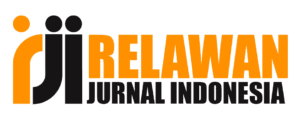Kolaborasi Pemerintah Desa dan PT STM dalam Pengembangan Pendidikan Melalui Program CSR
Abstract
Penelitian ini bertujuan untuk menganalisis bagaimana Kolaborasi Pemerintah Desa Dan PT STM Dalam Pengembangan Pendidikan Melalui Program CSR. Kemudian, Metode penelitian yang di gunakan adalah penlitian kulitatif deskriptif,, Sumber data pada penelitian ini adalah sember adalah data Skunder dengan teknik pengumpulan Observasi dan dokumentasi. Kemudian, rteknik analisis data yaitu pengumpulan data, kemudian reduksi data, penyajian data dan penarikan kesimpulan. Selanjutnya Hasil Penelitian ini menunjukan bahwa dalam membangun kerjasama perlu adanya Regulasi, dalam penetapan regulasi melalui sebuah kesepakatan besama, terbentuk sebuah Perda yang mengatur tentang segala sesuatu yang berhubungan dengan perusahaan swasta, mulai dari jenis program hingga sangsi untuk perusahaan apabila tidak menjalankan kewajibannya mengeluarkan program CSR, regulasi yang mengikat PT.STM dan pemerintah setempat adalah Perda Kabupaten Dompu No.04 tahun 2019 tentang Tanggungjawab Sosial dan Lingkungan Perusahaan.
References
Basmalah, N. F., Fauziyah, E., & Zuhriyah, A. (2023). Strategi Pengembangan Sektor Pertanian Di Desa Tlontoraja, Kabupaten Pamekasan. AGRICA. http://e-journal.uniflor.ac.id/index.php/Agr/article/view/2837
Bitsch, L., Li, S., & Hanf, J. H. (2020). Vertical coordination in the Chinese grape market. Journal of Agribusiness in Developing and Emerging Economies, 11(4), 396–410. https://doi.org/10.1108/JADEE-07-2020-0145
Borni Kurniawan, K. F., Dharmawan, A. H., Sumantri, T., & Maksum, M. (2023). Social Relation of Production and Conflict of Economic Interests in Smallholder Oil Palm Plantations: A Case Study of Sintang District, West Kalimantan. Sodality: Jurnal Sosiologi Pedesaan, 11(1), 13–26. https://doi.org/10.22500/11202342944
Buchan, R. (2019). How Canadian Local Governments Enhance Food Security : Exploring food security approaches in urban , rural , and suburban contexts on Southern Vancouver Island by. uwspace.uwaterloo.ca. https://uwspace.uwaterloo.ca/handle/10012/15223
Bui, D. T., Barnett, T., Hoang, H., & Chinthammit, W. (2023). Development of a framework to support situational tele-mentorship of rural and remote practice. Medical Teacher, 45(6), 642–649. https://doi.org/10.1080/0142159X.2022.2150607
Cai, Y., Qi, W., & Yi, F. (2023). Smartphone use and willingness to adopt digital pest and disease management: Evidence from litchi growers in rural China. Agribusiness, 39(1), 131–147. https://doi.org/10.1002/agr.21766
Esengulova, N., Carella, M. M., & Lopolito, A. (2023). Stakeholder Empowerment in Sustainable Rural Development Partnerships: Two Case Studies from Italy. In Sustainability (Switzerland) (Vol. 15, Issue 8). mdpi.com. https://doi.org/10.3390/su15086977
Hao, D., Yan, Z., Wang, Y., & Wang, B. (2023). Effect of Village Informal Institutions and Cadre-Mass Relationship for Farmers’ Participation in Rural Residential Environment Governance in China. International Journal of Environmental Research and Public Health, 20(1). https://doi.org/10.3390/ijerph20010003
Kurniawan, C., Pratama, I., Purnawingsih, T., Artificial, U. P.-I. J. of, & 2022, U. (2022). Measuring Smart City Implementation to Improve the Quality of Public Services in Jambi City. Ijair.Id, 0(1). https://doi.org/10.29099/ijair.v6i1.405
Kurniawan, C., & Suswanta, S. (2022). Implementation of Artificial Intelligence by the Government of West Nusa Tenggara (NTB) in Disaster Management. International Conference on Public Organization (ICONPO 2021), 209(Iconpo 2021), 39–44.
Liu, S., Zhu, S., Hou, Z., & Li, C. (2023). Digital village construction, human capital and the development of the rural older adult care service industry. In Frontiers in Public Health (Vol. 11). ncbi.nlm.nih.gov. https://doi.org/10.3389/fpubh.2023.1190757
Lo, C. C., Lei, W. Y., Huang, Y. C., Hwang, J. J., Lo, C. Y., Lin, C. hung, Cheng, H. sheng, Liao, Y. T., Liang, P. C., Chiou, M. J., Bair, M. J., Dai, C. Y., & Yu, M. L. (2023). Micro-elimination of hepatitis C virus infection in the rural and remote areas of Taiwan – A multi-center collaborative care model. In Journal of Microbiology, Immunology and Infection. Elsevier. https://doi.org/10.1016/j.jmii.2023.01.014
Panganiban, G. G. F. (2019). E-governance in agriculture: digital tools enabling Filipino farmers. Journal of Asian Public Policy, 12(1), 51–70. https://doi.org/10.1080/17516234.2018.1499479
Pavel, A., & Moldovan, O. (2019). Determining local economic development in the rural areas of Romania. Exploring the role of exogenous factors. Sustainability (Switzerland), 11(2). https://doi.org/10.3390/su11010282
Saputro, K. E. A., Hasim, Karlinasari, L., & Beik, I. S. (2023). Evaluation of Sustainable Rural Tourism Development with an Integrated Approach Using MDS and ANP Methods: Case Study in Ciamis, West Java, Indonesia. In Sustainability (Switzerland) (Vol. 15, Issue 3). mdpi.com. https://doi.org/10.3390/su15031835
Sulistyaningsih, T., Pamungkas, M. Y. P., Maulana, I. D., & Nurjaman, A. (2020). The Implementation of Collaborative Urban Governance in City Without Slums Program (Kotaku) in Pasuruan, Indonesia. eprints.umm.ac.id. https://doi.org/10.2991/assehr.k.200529.174
Wang, J., & Wang, Y. (2023). Economic performance of rural collective-owned cooperatives: Determinants and influence mechanism. Annals of Public and Cooperative Economics. https://doi.org/10.1111/apce.12454
Zhang, D. (2019). Application of blockchain technology in incentivizing efficient use of rural wastes: A case study on Yitong System. Energy Procedia, 158, 6707–6714. https://doi.org/10.1016/j.egypro.2019.01.018
Copyright (c) 2023 Journal of Governance and Local Politics (JGLP)

This work is licensed under a Creative Commons Attribution-NonCommercial-NoDerivatives 4.0 International License.










